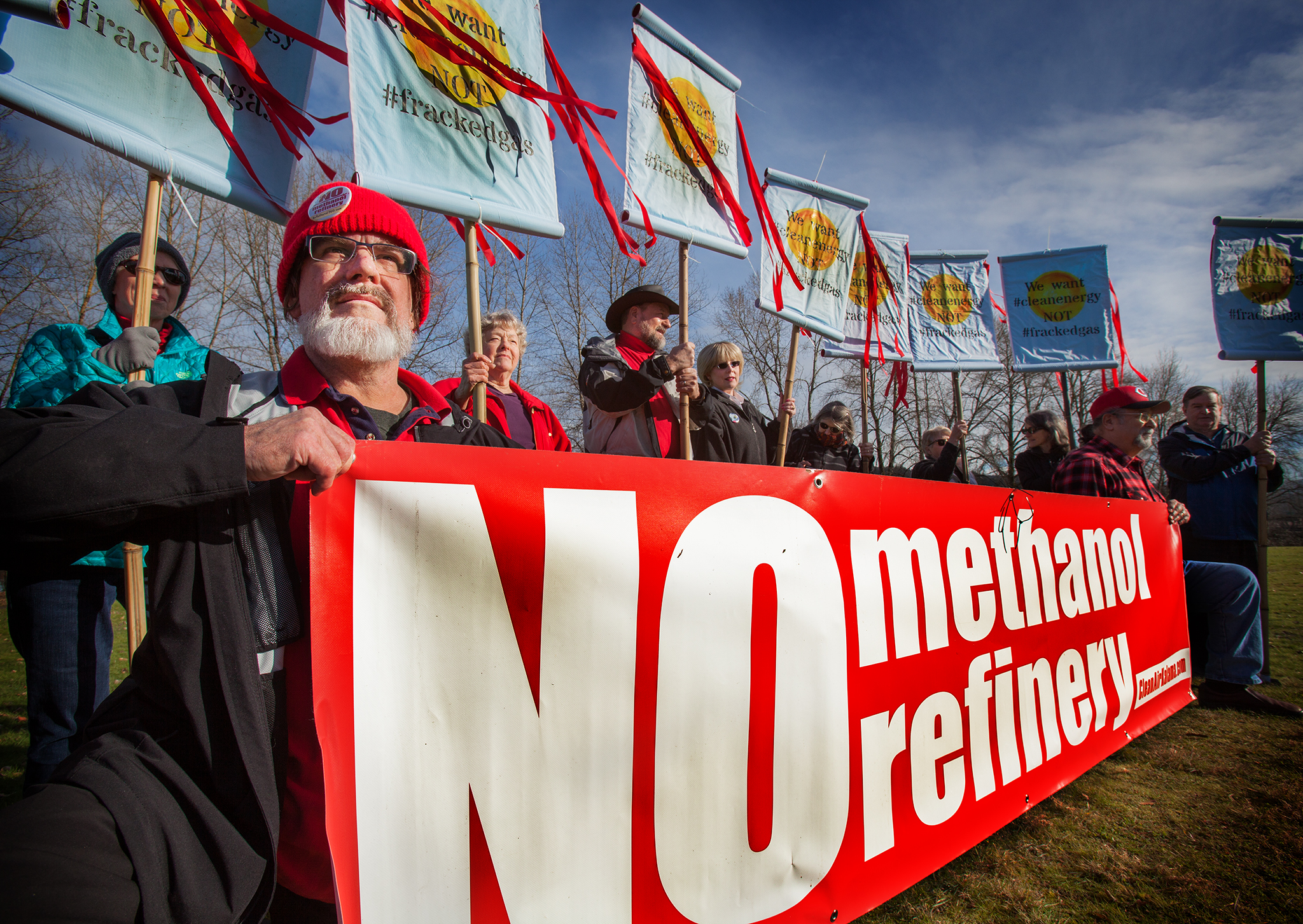
©Rick Rappaport, 2017
By Sept Gernez, Chapter Organizer
Years ago, before Donald Trump became president before a global pandemic put the world on hold, I visited the town of Kalama for the first time. Kalama is about 30 miles north of Portland, right on I-5 in Washington. It's a small town, with antique shops, a few restaurants, and a small grocery store. On a clear day, you can see Mount St. Helens. The Port of Kalama, on the other side of the freeway from the town, towers over the town with industrial machines used for grain, lumber and other goods. Like many small towns, this one is full of community, love, and care.
But there’s something that sets Kalama aside from others like it -This is the town that stopped the world’s largest methanol refinery from being built!
The refinery would have taken fracked gas from the US and Canada, liquified it into methanol, and shipped it to China. In the process, it would release more climate warming emissions than all industries in Washington state combined! It would have included a massive smoke plume the size of Mount St. Helens, and emitted more than 60 cancer-causing chemicals into the air.
On my first visit, none of us felt confident we could stop the refinery. It was already pretty far into the permitting process, and the company behind it, Northwest Innovation Works (NWIW) had cultivated a lot of support for the refinery from locals and the Governor’s office. Still, we thought, let's give them a run for their money.
We organized. We got petition signatures of folks in the town that opposed the refinery, many of whom thought they were the only one! We distributed yard signs to show that there were others who opposed it. We flooded the port meetings, setting records for attendance and public comment.
Then, when the project was dangerously close to full approval, we found a legal avenue. The original impact statement used to make permitting decisions for the refinery was incomplete. They omitted impacts and used faulty science to try and convince the public that this methanol refinery was good for the environment. The courts forced NWIW to complete a supplemental impact statement, which called for a process of public hearings. We filled the hearing room and public comment record with raw, emotional stories from people who would be directly impacted by the refinery. We did our own analysis of the project and supported permitting agencies in using accurate science. In the process, we turned the tables on Northwest Innovation Works. Governor Inslee retracted his support for the refinery, and the people of Kalama elected a mayor vocally opposed to the refinery.
Once the impact statement was final, it was clear the company continued to use inaccurate science, and again, they were forced to re-do their impact statement. We organized more, bigger events, galvanizing the whole region to show up to virtual hearings in the time of COVID-19.
Then finally, after a long year in 2020, the Washington State Department of Ecology ruled to reject a key permit for the refinery, effectively stopping the project! We did it! We stopped the world’s largest methanol refinery!
The sign that visitors see when entering Kalama reads “Welcome to Kalama, the small town with big horizons”. Now, this town can enjoy its big horizons for years to come. The rest of us can relish that this massive refinery will not be built, and will not contribute to the climate crisis.
When we fight, we win! No matter the size of your town, no matter how small your community feels, it is possible to stop massive fossil fuel projects.
Here’s to continuing the fight!